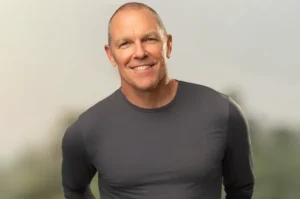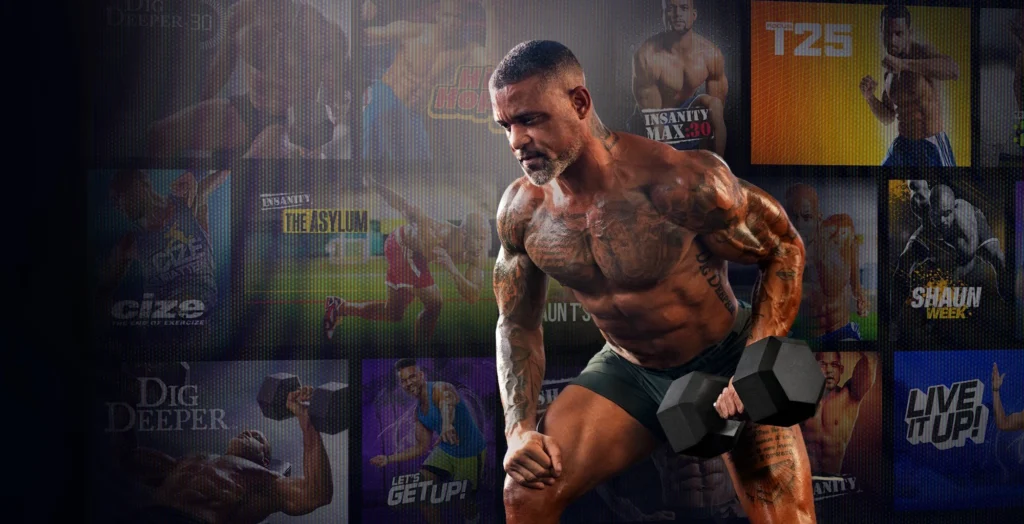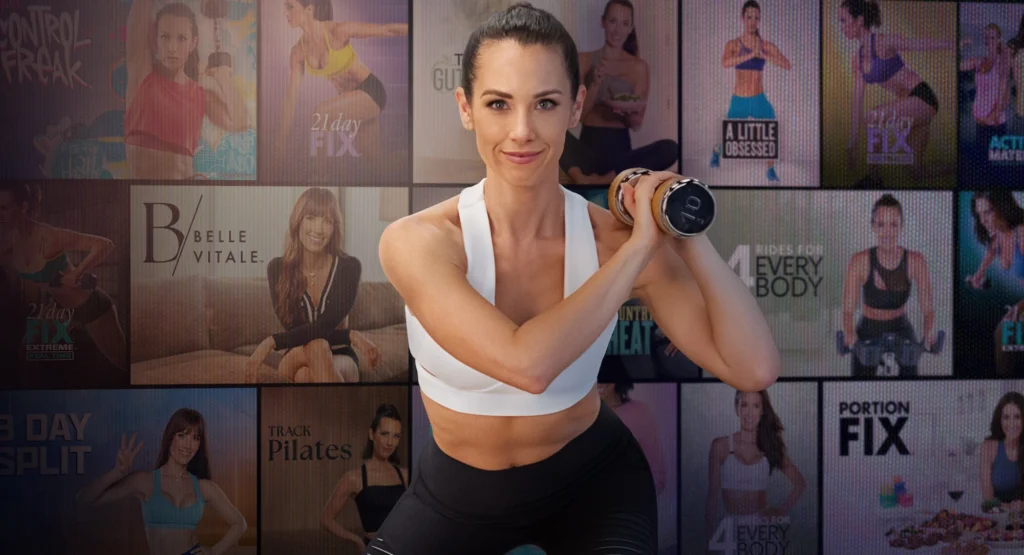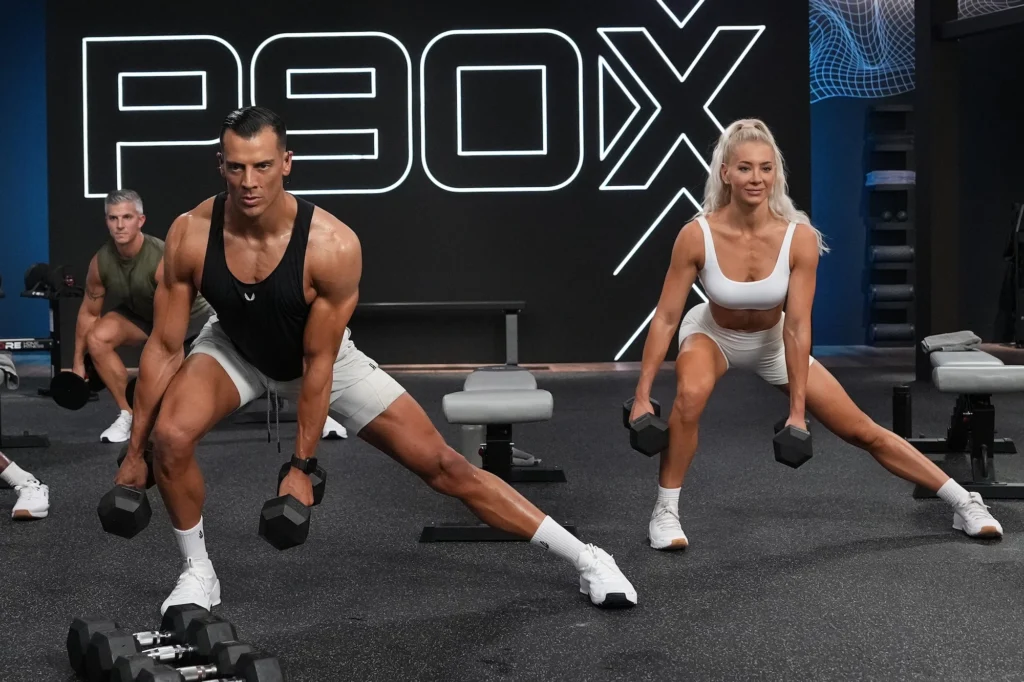
Carl Daikeler co-founded Beachbody back in 1998, quickly creating an at-home fitness giant. A lot has changed since then, but Daikeler is highly bullish on the future of the brand now known as BODi
Around two and a half years ago, Carl Daikeler made the difficult decision to change the name of a company he’d co-founded and built into an at-home fitness empire.
In March 2023, Beachbody, known for its popular at-home fitness programs like “P90X,” “Insanity” and “21 Day Fix,” officially became BODi. The move, Daikeler says, was made to bring the brand into the modern era of fitness, which has seen consumers increasingly move away from chasing body-image ideals in favor of pursuing sustainable well-being.
“It was the wrong kind of recognition,” Daikeler tells Athletech News of how his company was being perceived by consumers and the larger fitness industry in the days during and immediately following the pandemic.
Daikeler’s also been candid about challenges BODi has faced in the post-pandemic era, where there’s more competition in the at-home fitness space than ever before, and where consumers are flocking to brick-and-mortar gyms and studios, oftentimes at the expense of working out at home.
Still, Daikeler is highly bullish on BODi’s future, pointing to the quality of its digital fitness programs, honed over nearly three decades of creating content. In February, the brand will reboot arguably its most famous program ever with “P90X: Generation Next,” a modernized version of the classic workout series.
Ahead of the relaunch, Daikeler sat down with ATN to discuss the name change, share what’s coming next for BODi and give his take on why having quality content matters more than ever in the era of AI.
The following conversation has been lightly edited for clarity and length.
Athletech News: Can you share why you decided to create BODi – then known as Beachbody – back in 1998?
Carl Daikeler: It started based on a skill set I built in direct marketing, or what would have been called direct-response marketing at the time. Fitness was a very reliable product category, infomercials in particular. But I thought it was relying (too much) on equipment breakthroughs, and frankly, gimmicks, and that none of those companies would be around very long because people would realize that. I thought, “What if the product people were buying actually was legitimate?”
So in essence, we basically created a virtual trainer that people could follow step by step, without having to make the trip to the gym or put a fitness plan together for themselves. This really filled a gap between making it up yourself and hiring a personal trainer at a cost efficiency that was compelling. That’s what we’ve been doing for (27) years now, having created 140 programs that solve problems for people.
ATN: The fitness industry has changed quite a bit since then, perhaps most markedly during COVID. Why did Beachbody decide to change its name to BODi in 2023?
CD: In the 2000s, Beachbody was a gratifying name; it connoted how you want to feel out in the public. It was never meant to idealize a specific body type, but we understood that in direct marketing, an aspirational outcome would generate the best response. While there’s nothing in there about abs, thighs and buns, there’s no denying that the name connoted the outcome.
Once we went digital, we created a streaming platform called “Beachbody On Demand Interactive.” That acronym is B-O-D-I, and we had the website, BODI.com. I thought that if we could get people to pronounce it right — it’s “body,” not “bodie” — the sort of double entendre with the physical body was an appropriate evolution of the Beachbody brand.
I got a lot of heat on that, with board members and executives asking, “Why would you blow away that kind of market recognition?” It’s really because it was the wrong kind of recognition. A lot of our customers and our affiliates have kids, and they want to raise those kids with a healthy body image and not with a pure aspiration for vanity as an outcome, but instead health, well-being and building good habits. That’s the legacy we want to leave.
So we made that hard decision a few years ago, and I think it’s starting to pay off in that people are assessing BODi through a different lens; they’re not just engaging with the platform when they’re getting ready for a wedding or trying to lose the winter weight after January 1. Now it’s more of an approach of, “My body matters.” I want to love my body every single day, even if it’s just 10, 15 or 20 minutes.” So I think it was a good choice.

ATN: BODi has floated the term “Netflix of Fitness” in recent years. Is that still how you view the brand today, or has your approach changed?
CD: When you think about the scope of programming we have on our platform, I think our own egos probably got enamored with calling ourselves the “Netflix of fitness.” But I don’t think fitness is consumed like entertainment content.
If I were to use a different metaphor, I would say we’re more like Uber. You don’t really care that Uber has a variety of cars and drivers. What you care about is that when you need to get from here to there, the right car and driver are immediately available and will get you there safely. That’s what BODi is — when you need a specific outcome and you want to get from here to there as fast as possible, and you want it to be safe and healthy, we have the right program and the right expert to get you there.

ATN: Speaking of content, what’s BODi’s approach to creating fitness programs in 2025, and how has this evolved since you started the company nearly three decades ago?
CD: We’re still results-oriented, but we’re working the whole continuum as we pay attention to trends. We’re working on short-form programming for people who just need to check the box every day to get a meaningful health and fitness outcome.
Pilates, for example, is an incredibly highly searched genre that people are rabid about. But if you’re busy or on a tight budget, it’s very difficult to go to a studio and get on that reformer. So Autumn Calabrese created a program called “Track Pilates” that’s incredible at mimicking what a reformer would do in a studio. You can do this for around 100 bucks with 100 bucks worth of equipment that attaches to your door or wall.
At the other end of the continuum, in November, we’re launching a program with Shaun T called “Dig In,” which is a hybrid between a lifting program he did a couple years ago called “Dig Deeper,” and Insanity, which is where most people know him from.
This is about as far as I can go into the future right now, but we just wrapped up principal photography of “P90X Generation Next,” which is coming February 3. It features our newest super trainer, Waz Ashayer. Waz is an absolute innovator. He’s a prominent trainer for Equinox, but he’s also created these pop-up fitness boot camps that he holds in these crazy locations, like on top of an aircraft carrier docked in New York. He’s bringing a new energy to this modernized evolution of one of the most extreme — and culturally defining — programs in home-fitness history. With that, we’re partnering with brands like ASRV, Core Home Fitness and Hyperice (as well as Reebok), and launching an entire line of P90X exclusive supplement formulations in retail in the second quarter of 2026.

ATN: How has the demand for fitness and wellness changed since you started the company back in the ‘90s?
CD: People are paying closer attention to what they’re eating, and they’re seeing the difference between a life that’s sort of rotting away versus one that has some level of (physical) effort. Our job continues to be to play the role of the on-ramp, or the accessible source of health and fitness. Our job is to help people build the muscles of consistency, even if it’s just 10 or 20 minutes. How can $10 to $20 a month help someone dramatically improve their quality of life and health without turning their whole life upside down? There are 185 million people who are overweight or obese; they just need some consistency.
ATN: You’ve spoken candidly about BODi’s turnaround efforts amid the challenges of the pandemic, which is still a work in progress. What’s your vision for the future of the company?
CD: I think we as a company (still) have a lot of work to do for me to feel like we’ve achieved our mission. We just haven’t reached enough of this enormous TAM that desperately needs our products and programs.
It’s funny, as I think about musicians like Michael Jackson and Prince, and Taylor Swift today, there’s so much attention to detail and production value. Ultimately, that’s how I want people to see BODi. For 27 years, we’ve been creating concepts and curating talent that’s next-level, that you just can’t get by randomly going through YouTube workouts. We have 140 programs, and we’re already seeing people who realize there’s something dramatically different from a BODi program, so they’re resubscribing. I’m really proud of that, and honestly, that’s what keeps me going after all this time.
You can’t AI yourself fit. You have to show up and do the work, and that’s a dramatically human experience. It’s our job to keep it human, because the human experience is what is compelling.
